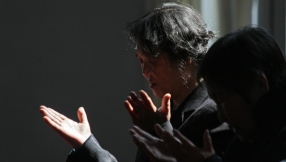Leprosy Mission welcomes UN Convention on disabled rights
Disabled leprosy sufferers have experienced a "double discrimination", the organisation said, from both having the disease and the disabilities associated with it. In many cases leprosy and its disabilities can lead to loss of work, family, community or marriage prospects.
The Convention covers issues of equal political rights, employment, education, participation in political and public life and equal legal rights.
National Director of The Leprosy Mission England and Wales, Rupert Haydock, said of the Convention: "This is a very important step which will address the gap in human rights legislation and enable people with leprosy-related disabilities to have more of a voice."
The Convention could only come into force when a total of 20 countries had ratified it, Ecuador's finalisation of this process on 3 April made it the twentieth country to do so.
The implications for people affected by leprosy are significant for Ecuador itself, which according to the World Health Organisation has an annual new case rate of 95 people.
In fact over half of the first 20 countries to ratify the Convention are affected by leprosy, including India, which has 139,252 new cases per year, more than half of all new cases detected worldwide.
A further 106 countries, including the UK, have signed the Convention to say they intend to take the formal step of ratification since the UN General Assembly adopted it at the end of 2006. The UN is now strongly encouraging all of these countries to complete the process of ratifying the Convention.
Bringing the Convention into force on 3 May signifies a welcome and overdue global move towards recognising discrimination against people with disabilities as a serious problem that must be addressed in every country.













